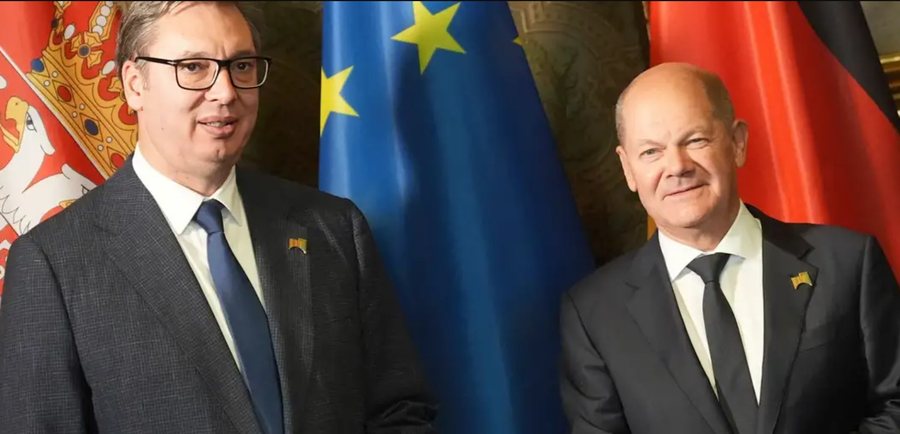
The Chancellor of Germany, Olaf Scholz, and the President of Serbia, Aleksandar Vucic, will visit together this Tuesday (10.12.2024) the Saxon Mining Authority in Freiberg, Germany, it is announced by the German Chancellor's office in Berlin. The focus of the talks is sustainable lithium extraction.
Lithium - common theme
Both Serbia and the East German state of Saxony are believed to have large amounts of lithium. The mineral is a key component for the production of electric vehicle batteries. The Saxon project aims to produce around 12,000 tonnes of lithium hydroxide per year over a period of 35 years, contributing to the production of batteries for around 600,000 electric vehicles each year.
Much larger is the amount of lithium that is planned to be produced in Serbia: 58,000 tons of lithium per year. This amount could be enough for around 1.1 million electric vehicles – roughly 17% of European demand.
Advantage for European car companies
On July 19, 2024, the European Union and Serbia signed an agreement on the extraction of lithium in the Jadar Valley in Serbia. The signing ceremony was attended by German Chancellor Olaf Scholz, Serbian President Aleksandar Vucic and the then Vice President of the European Commission, Marosh Sefcovic.
Germany's commitment to the lithium agreement with Serbia is the result of a coordinated strategy by the German government and the European Union, with the aim of securing sustainable sources of lithium for the European electric vehicle industry and reducing dependence on Chinese imports.
Germany is the main investment partner
But Germany can serve not only as a buyer of lithium, but also as its processor directly in the country. In a speech held on December 4 in Zurich, President Aleksandar Vucic emphasized that he wants the liturgy to be processed locally. In an interview with the German media, in July of this year, the Serbian president stated that he is making agreements with automobile corporations such as Mercedes-Benz, Volkswagen and Stellantis for access to lithium for car batteries. Many of these companies have long warned that they will close factories in the country to open others elsewhere in Eastern Europe.
New factories of large German companies in Serbia would further strengthen the rather strong economic relationship between Serbia and Germany. Germany is an important economic partner of Serbia. According to data from the German-Serbian Chamber of Commerce (AHK) in Belgrade, companies with German capital have created around 80,000 jobs in Serbia, making Germany one of the largest foreign investors in the country in terms of the number of locations. work.
The meeting also benefits current chancellor and 2025 chancellor candidate Olaf Scholz to improve his still weak popularity in the polls and show that he is looking for solutions to help the German auto industry out of crisis ./ (A2 Televizion)











